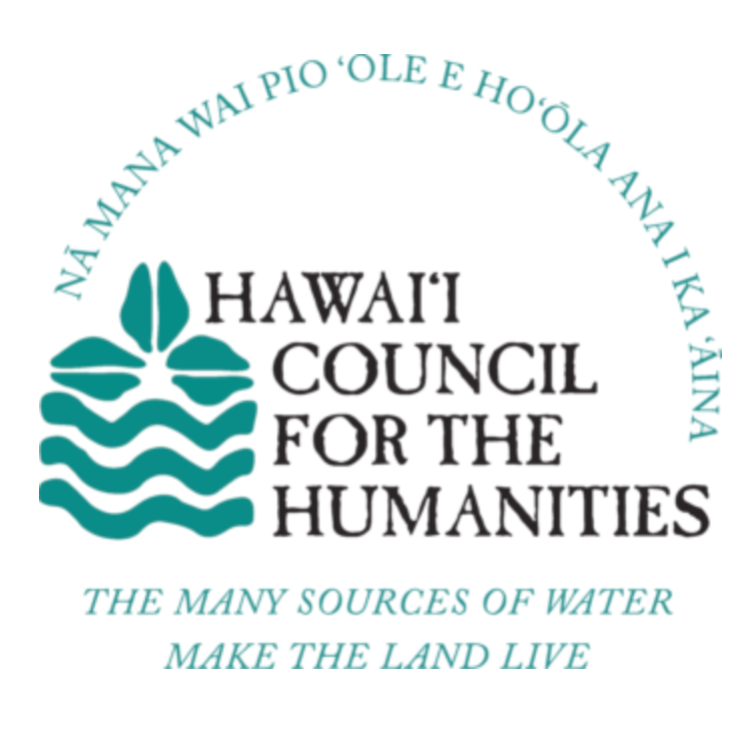Watch our ʻōlelo Hawaiʻi episode from our Mālama Our History District Video series featuring powerful moʻolelo about community, language, history, and culture from Aunty Keala and Kumu Māhealani Lono.
Why Do ʻŌlelo Hawaiʻi for Hawaiʻi History Day?
Watch kumu Māhealani Lono’s video, Lā Mōʻaukala Hawaiʻi ma ka ʻōlelo Hawaiʻi as she explains the importance of History Day.
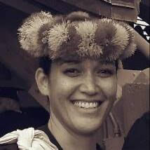 No ke aha? Manomano ka maikaʻi o ka Papahana Lā Mōʻaukala. Ahuwale ke aloha naʻauao i loko o ka haumāna no ka mea nāna e hoʻokele a koho i kāna kumuhana. Hiki i ka haumāna ke aʻo ma nā ala like ʻole a mai nā kūmole o kēlā me kēia ʻano e like me nā nūpepa kahiko, nā mele a me ka hula,ʻoiai nui nā koho no ke ʻano o ka hōʻikeʻike. ʻIke ʻia ka ulu ʻana o ka haumāna ma kona ala noiʻi ma o kona hoihoi, ka noke ʻana, ka luhi, ka hoʻomākaukau, ka haʻalulu, ka pīhoihoi, a laila ka haʻaheo maoli o ka haumāna ke kō ka hōʻikeʻike. Mahalo i ka Lā Mōʻaukala, hoʻolaha ʻia nā moʻolelo i lohe ʻole ʻia i nā makahiki a pau ʻoiai ʻo ka maʻamau, ʻaʻole ʻimi ʻia a loaʻa. Mahalo pū au i ka Fea Lā Mōʻaukala no ka mea kono ʻia nā kānaka a pau e hele a he wahi e hōʻike ai ka haumana i ka hua o kāna kaʻina hana piha i nā kānaka kamaʻaina ʻole. He mea nui kēia a he ala e kūlia i ka nuʻu.
No ke aha? Manomano ka maikaʻi o ka Papahana Lā Mōʻaukala. Ahuwale ke aloha naʻauao i loko o ka haumāna no ka mea nāna e hoʻokele a koho i kāna kumuhana. Hiki i ka haumāna ke aʻo ma nā ala like ʻole a mai nā kūmole o kēlā me kēia ʻano e like me nā nūpepa kahiko, nā mele a me ka hula,ʻoiai nui nā koho no ke ʻano o ka hōʻikeʻike. ʻIke ʻia ka ulu ʻana o ka haumāna ma kona ala noiʻi ma o kona hoihoi, ka noke ʻana, ka luhi, ka hoʻomākaukau, ka haʻalulu, ka pīhoihoi, a laila ka haʻaheo maoli o ka haumāna ke kō ka hōʻikeʻike. Mahalo i ka Lā Mōʻaukala, hoʻolaha ʻia nā moʻolelo i lohe ʻole ʻia i nā makahiki a pau ʻoiai ʻo ka maʻamau, ʻaʻole ʻimi ʻia a loaʻa. Mahalo pū au i ka Fea Lā Mōʻaukala no ka mea kono ʻia nā kānaka a pau e hele a he wahi e hōʻike ai ka haumana i ka hua o kāna kaʻina hana piha i nā kānaka kamaʻaina ʻole. He mea nui kēia a he ala e kūlia i ka nuʻu.
—Māhealani Lono
Also see kumu Bruce Torres Fischer’s video, as he explains Why Do a History Day Project in ʻōlelo Hawaiʻi.
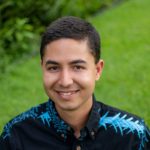 ʻAuhea ʻoe, e ka mea heluhelu. Eia nō kākou i kekahi wā kupaianaha no ke ola o kā kāua ʻōlelo makamae, ʻo ka ʻōlelo Hawaiʻi hoʻi. Ke ʻike ʻia nei kona māhuahua ʻana aʻe i loko o nā kaiāulu o ko Hawaiʻi pae ʻāina, a me kona hoʻokuluma hou ʻia ma nā ʻano pōʻaiapili like ʻole, a ʻo ka papahana ʻo Hawaiʻi History Day kekahi o ia mau wahi. Ma ia papahana e aʻo ai ka haumāna ka hana nui ma ka hoʻomākaukau ʻana i kāna pāhana noiʻi, a e lawe ʻo ia i ke aʻo ma waho o ka lumi papa ma ka hōʻikeʻike haʻaheo ʻana i ka hua o kāna hana ponoʻī i ke ao, ma ka ʻōlelo Hawaiʻi nō hoʻi. I kēlā me kēia makahiki, ʻike ʻia ka waiwai o kēia hanana no ka haumāna a me ka ʻōlelo Hawaiʻi. Lana aʻe ka manaʻo, e nui hou aʻe ana nā haumāna kula kaiapuni e hōʻike ana i kā lākou hana maikaʻi ma kēia papahana.
ʻAuhea ʻoe, e ka mea heluhelu. Eia nō kākou i kekahi wā kupaianaha no ke ola o kā kāua ʻōlelo makamae, ʻo ka ʻōlelo Hawaiʻi hoʻi. Ke ʻike ʻia nei kona māhuahua ʻana aʻe i loko o nā kaiāulu o ko Hawaiʻi pae ʻāina, a me kona hoʻokuluma hou ʻia ma nā ʻano pōʻaiapili like ʻole, a ʻo ka papahana ʻo Hawaiʻi History Day kekahi o ia mau wahi. Ma ia papahana e aʻo ai ka haumāna ka hana nui ma ka hoʻomākaukau ʻana i kāna pāhana noiʻi, a e lawe ʻo ia i ke aʻo ma waho o ka lumi papa ma ka hōʻikeʻike haʻaheo ʻana i ka hua o kāna hana ponoʻī i ke ao, ma ka ʻōlelo Hawaiʻi nō hoʻi. I kēlā me kēia makahiki, ʻike ʻia ka waiwai o kēia hanana no ka haumāna a me ka ʻōlelo Hawaiʻi. Lana aʻe ka manaʻo, e nui hou aʻe ana nā haumāna kula kaiapuni e hōʻike ana i kā lākou hana maikaʻi ma kēia papahana.
—Bruce Torres Fischer
A Passion for History
“[My grandparents] were both educators and would constantly remind us that we needed to speak English at home so we could do well in college. So when I heard those kids at History Day, it touched my soul. It felt like bringing in family, bringing back the culture we had lost for so long. It brought History Day to a higher level in Hawai‘i.”
—Dorian Langi, retired teacher 2019–2020 will make our 30th year of running Hawaiʻi History Day.
The opposite of teaching to the test, History Day is a yearlong project- and student-centered program that challenges student research, creativity, public presentation, and application of history. With the help of their social studies teachers, students incorporate original research, primary source documents, and oral histories. They interpret this material within its historical context and explore the complexity of alternative points of view, and present their work (in essay, documentary, website, display board, or performance) to a panel of judges. Through History Day, students gain confidence, poise, and a deeper understanding of themselves, their communities, and their world.
ʻŌlelo Hawaiʻi Is the Future
“To be around this table is a sign that we as kumu are doing the right thing.”
—Māhealani Lono, kumu
In July 2019, we hosted our 2018-2019 group of ʻōlelo Hawaiʻi judges for a research and development meeting, coming up with ideas and next steps about how to intentionally grow this part of our program. Through deep and meaningful conversation with this group of leaders, we learned so much about the importance of ʻōlelo Hawaiʻi. The center of this work in using the language is about building identity, pride, a strong lāhui, and strengthening and renormalizing relationship of care and love and kuleana, between people and moʻolelo, kānaka and ʻōlelo. As an organization, we are very humbled and joyful to kōkua in this amazing movement.
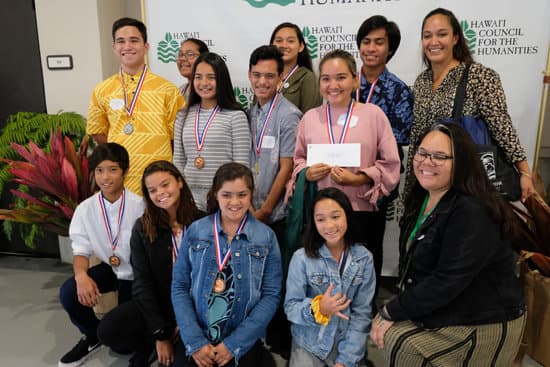
Hearing Our Voices
Incorporating ʻōlelo Hawaiʻi as a presentational language for Hawaiʻi History Day is not just about creating a new category in an academic competition. It’s about our kuleana to our community and supporting the mana wai—the diversity and wealth of our humanities resources. The inclusion of ʻōlelo Hawaiʻi is an act of hoʻokahe wai, where we may support the movement and growth of our rich humanities community.
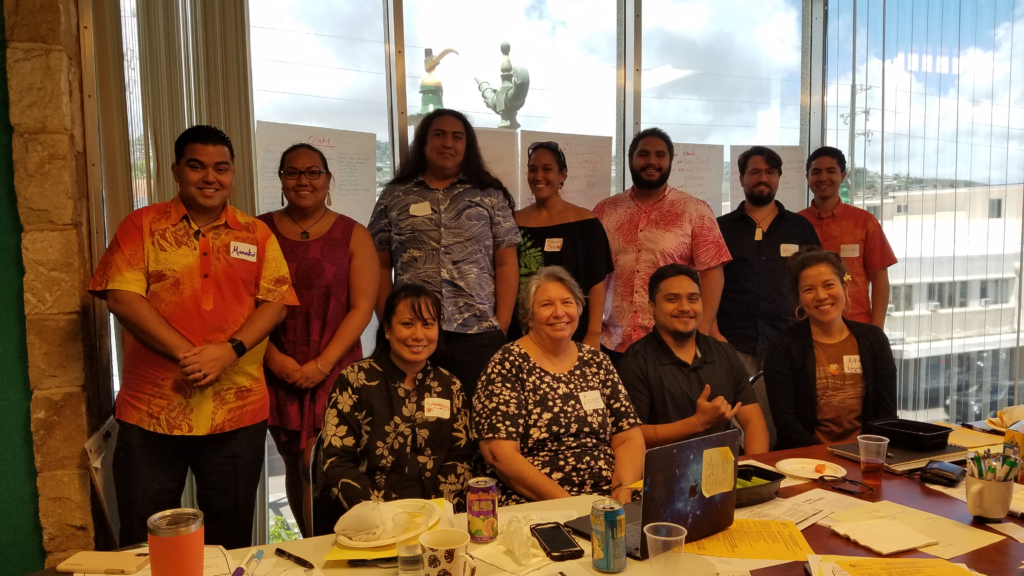
2019 (February, March, April) was the first year we were able to run a Hawaiian-language category of judging—meaning students were able to do their research and presentations and be judged ma ka ʻōlelo Hawaiʻi without translation. This is a powerful change that indicates the strength of the community of Hawaiian-language speakers and scholars, from ʻōpio to PhDs. We thank the haumāna and kumu of Ka ʻUmeke Kāʻeo PCS, and our first group of amazing judges in Hilo and Oʻahu for leading the way in 2019. We are very excited about bringing on more ʻōlelo Hawaiʻi projects in this new History Day season.
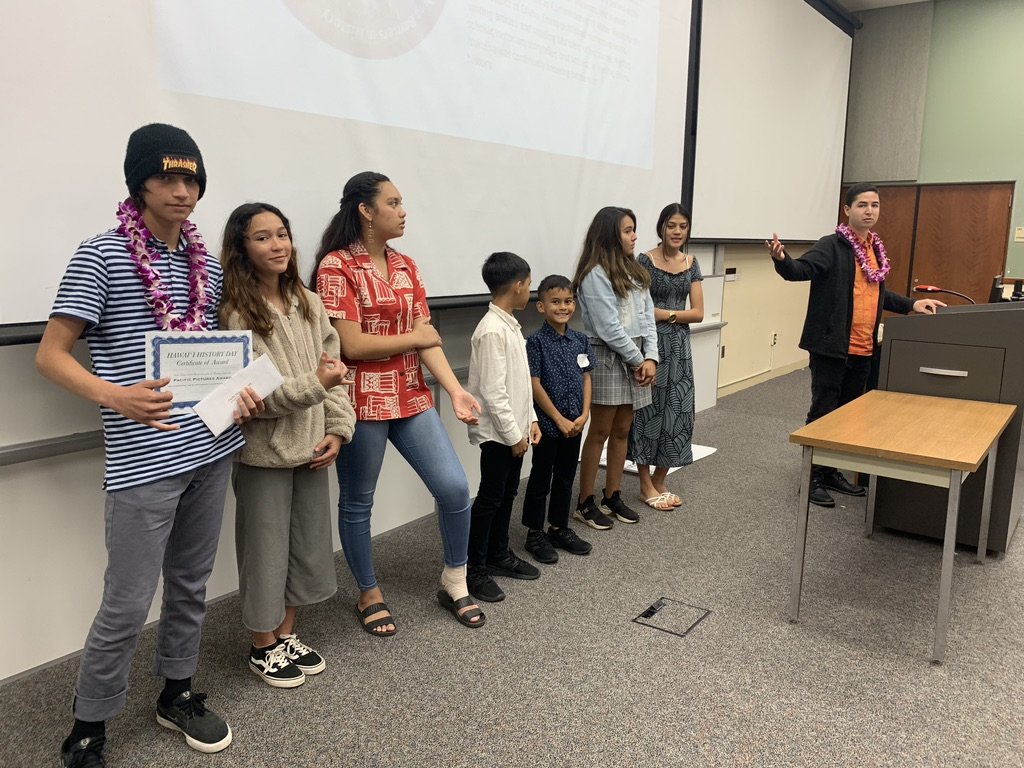
Come Join Us
We are looking for volunteer ʻōlelo Hawaiʻi Historian Consultants and Hawaiʻi History Day Judges who are:
- experienced in college-level research on a historical topic (not limited to Hawaiʻi topics)
- familiar with navigating ʻōlelo Hawaiʻi archives, resources (i.e., able to give research tips to kumu)
- interested in working with students and teachers (grades 4– 12), and available to be on-call to give advice on projects or make classroom visits related to your area of expertise
- interested in judging at a district or state fair (these are one-day commitments, and so fun and inspiring to see how brilliant the youth are)
- loves history and education and ʻōlelo Hawaiʻi!
If you are interested in joining us or talking further, please get in touch with Shannon Cristobal, Director of Hawaiʻi History Day & K-12 Humanities Programs.
